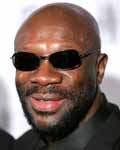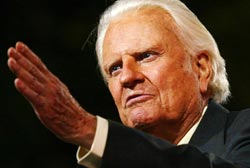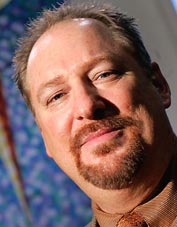 It’s tragic enough that singer-songwriter Isaac Hayes died Sunday at the age of 65. But according to an article by Roger Friedman on Fox News.com, Scientology may have played a role in the singer’s death–which was just today ruled the result of a stroke.
It’s tragic enough that singer-songwriter Isaac Hayes died Sunday at the age of 65. But according to an article by Roger Friedman on Fox News.com, Scientology may have played a role in the singer’s death–which was just today ruled the result of a stroke.
You may remember that back in March 2006, Hayes very publicly asked to be let out of his “South Park” contract right before the re-airing of the controversial Tom Cruise-Scientology “Trapped in the Closet” episode due to the series’ “inappropriate ridicule of religious communities.”
“There is a place in this world for satire,” Hayes said in a statement, “but there is a time when satire ends and intolerance and bigotry towards religious beliefs of others begins.”
Many in the media speculated Scientology was behind the departure from the show and the shows co-creator Matt Stone seemed to confirm the suspicions when he told Friedman that, “[Hayes] was under great pressure from Scientology, and if we didn’t stop poking at them, he’d have to leave.” Now Friedman, and some people on YouTube and other social networking sites, are speculating that Scientology had something to do with Hayes’ departure from this life.
Although in the article Friedman doesn’t come right out and say that Scientology murdered Hayes, he proposes that the church started Hayes on a downward financial spiral by forcing him to quit–losing the lucrative voice-over work while still paying for expensive Scientology courses–and that it was something he couldn’t recover from; especially after, as Friedman reports, Hayes suffered a severe stroke before his resignation.
“… There are a lot of questions still to be raised about Isaac Hayes’ death,” Friedman writes. “Why, for example, was a stroke survivor on a treadmill by himself? What was his condition? What kind of treatment had he had since the stroke?”
In particular, Friedman questions whether or not Hayes was able to pursue psychiatric help or take psychotropic drugs as part of his rehabilitation since Scientology opposes the use of such medication and the practice of psychiatry. (It should be noted, however, that Scientology does not oppose the assistance of a neurologist or other medical specialist as Friedman’s piece may have implied.)
While I can’t really speak to medications used for stroke rehabilitation, and I’m not aware of stroke victims being barred from cardiovascular exercise when so far removed from the event, I do know that this would not be an issue if Hayes was a practicing Methodist. It’s not just the accusations of conspiracy, but the very fact that Mr. Hayes’ religion is given disproportionate coverage in every obituary that I have read thus far. Again, if Hayes was a practicing Catholic, would his religious affiliation get this kind of attention?
It can be argued that, like Mel Gibson with his brand of Catholicism, Hayes’ Scientology should receive major coverage since it seemingly, and controversially, played a role in his career. Sure, Scientology set out from the beginning to be associated with celebrity, but it really is tragic that Scientology is getting more attention in some outlets than Hayes’ Oscar for the theme from “Shaft” or his groundbreaking work as Chef.



